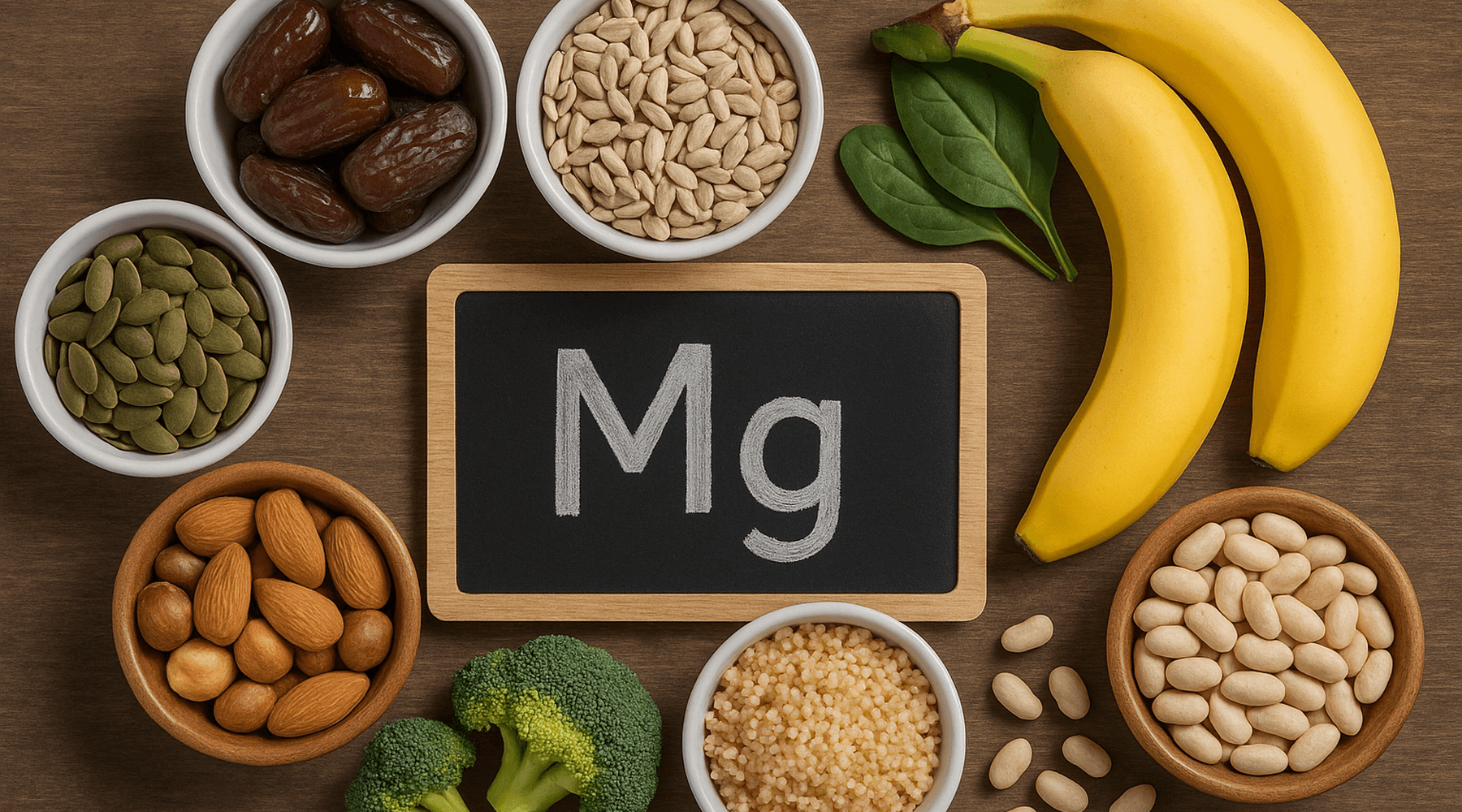Magnesium is a vital mineral involved in over 300 biochemical reactions in the body. Despite its importance, many people in the UK do not meet the recommended daily intake, potentially impacting various aspects of health. Here are five key benefits of magnesium, and the reasons why we include magnesium in our Upgraded Electrolytes.
1. Enhances Muscle and Nerve Function
Magnesium plays a crucial role in muscle contraction and nerve transmission. It regulates calcium levels within muscle cells, facilitating proper muscle relaxation and preventing cramps and spasms. Adequate magnesium levels are essential for energy production, especially in physically active people. Research indicates that magnesium supplementation can alleviate muscle cramps and improve muscle function, particularly in older adults and athletes.
2. Improves Sleep Quality
Magnesium contributes to better sleep by regulating neurotransmitters like gamma-aminobutyric acid (GABA), which promotes relaxation and reduces brain activity. It also supports melatonin production, the hormone responsible for maintaining the sleep-wake cycle. Studies have shown that magnesium supplementation can enhance sleep efficiency and duration, particularly in older adults experiencing insomnia.
3. Supports Heart Health
Magnesium is essential for maintaining a healthy heart rhythm and regulating blood pressure. A UK Biobank study involving nearly 150,000 participants found that sufficient dietary magnesium intake was associated with a lower risk of atherosclerotic cardiovascular disease (ASCVD) events and mortality, especially in individuals with type 2 diabetes. Additionally, magnesium helps relax blood vessels by increasing nitric oxide production, contributing to normal blood pressure regulation.
4. Enhances Mental Health and Mood
Magnesium influences brain function and mood regulation by modulating neurotransmitters such as serotonin and dopamine. Research suggests that low magnesium levels are linked to increased risk of depression and anxiety. A clinical trial indicated that magnesium supplementation could alleviate mild-to-moderate depressive symptoms. Furthermore, magnesium's role in regulating the hypothalamic-pituitary-adrenal (HPA) axis helps manage the body's stress response, potentially reducing cortisol levels and promoting relaxation.
5. Regulates Blood Sugar Levels
Magnesium is involved in glucose metabolism and insulin action. Deficiency in magnesium has been associated with insulin resistance and poor glycemic control. A meta-analysis demonstrated that higher magnesium intake was linked to a lower risk of developing type 2 diabetes. Moreover, research from the University of Sunderland found that low blood magnesium levels are common in individuals with type 1 diabetes and may contribute to complications by affecting blood clot breakdown.

Share:
The electrolyte boom and why Good Tempo is different